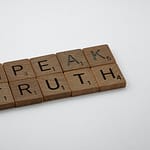This article is not owned by Engage for success and was originally published by HR zone and can be found here.
The approach of a new year and the continuing recovery of a still-turbulent economy are prompting a rush of objectives amongst businesses. Whether aiming to increase sales, drive profitability, break into new territories or increase market share, managers throughout the world continue to face a key challenge: how to build and maintain an effective sales team?
Rather than reverting to the failsafe options of increasing headcount or throwing budget at generic training and hoping for a sudden improvement in performance, a methodical and structured approach could well be the answer. Breaking down the process of building a sales team into clearly defined and manageable steps can help to create a solid foundation for long-term success. This should encompass all areas, from recruitment and development to progression and reward structure, with each of these elements essential in forming a well-oiled and profitable sales machine.
Step One: Evaluate, Analyse, Assess.
As obvious as it sounds, it’s important to start at the beginning. Until the current performance and skill levels within an existing sales team are determined, there is no way of identifying the gaps or areas requiring improvement. ‘Sales needs’ analysis can pinpoint areas of underperformance and form the foundation for a structured development plan that determines if the requirements are for additional hires, better processes or investment into training and development of existing staff. Work out what you need so you don’t take any unnecessary, costly steps.
Step Two: The Right People.
Richard Branson recently released an opinion piece via LinkedIn where he states his belief that personality should form a fundamental part in the pursuit of new talent for business: the rest, he says, can be taught or learnt. Agreement isn’t required to adjust your recruitment process for the better, it is often better to train a great fit than employ a mismatch with a great CV.
“The first thing to look for when searching for a great employee is somebody with a personality that fits with your company culture.” – Richard Branson
Investment into the recruitment process is paramount in getting the right talent, whether a raw entry level talent or a veteran. Going beyond the CV and preventing ‘hiring howlers’ through a multi-stage, comprehensive assessment and placement process will ensure the vast majority of hires will be the right one.
Step Three: Induction, Training and Development.
When bringing in fresh talent, or even those with experience, it’s vital to equip them with the necessary tools for success. Training and development should be a process, not an event: on-going and subject to continual review and revision, it should combine product knowledge with the soft skills and industry knowledge required to perform roles to the very best of that individual’s ability. Merging training with an accreditation programme may also ensure that staff are benchmarked to recognised standards, incentivised to continue delivering results and prevented from slipping through the net.
Step Four: Management
The age-old concept of ‘do as I say, not as I do’ is dead in the sales sphere. Successful managers coach rather than check their staff and regularly lead by example, engaging in the process and encouraging collaboration and communication within their teams. It’s worth noting that not every leading sales person has the qualities required to manage. Sales managers drive motivation, ensure accountability and are responsible for creating a culture that will breed results. Consider recruiting sales managers with experience, or providing internal applicants with specialised training to equip them with the unique skills required to manage successfully. If promotion does come from within, investment into leadership training could be vital.
Step Five: Reward and Recognise
Reward and incentive packages are commonplace within the sales industry, which is particularly important given the long hours and countless rejections frequently seen by sales professionals. A successful incentive programme recognises productivity, progress and improvement, rather than results alone. The definition of effective recognition can be reduced down to development of the individual, ensuring they continue to feel valued and can see their career progressing, in their salary and role. This should be transparent and combine financial reward with personal acknowledgment from senior management, providing much needed motivation for staff in a potentially disheartening business marketplace.
Summary
A structured recruitment, development, progression and rewards programme will not only impact performance levels but directly influence staff retention, job satisfaction levels, productivity and activity figures as well as, in turn, sales and revenue generation. Getting the right ingredients and mixing them accordingly is therefore paramount: and will see businesses reap the rewards of world-class sales teams who deliver big results.
To summarise, a world-class sales team requires continual review and development as well as structured, informed implementation. Building a winning team, like training, cannot be considered a one-off process: like the industry itself, it requires on-going investment to ensure success. However, with these five steps in mind, you can be confident in laying the best possible foundation for results.
This article is not owned by Engage for success and was originally published by HR zone and can be found here.




